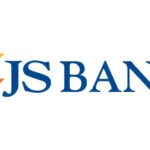Leading provider of ICT and telecom services in Pakistan, PTCL Group (PTCL & Ufone 4G), has announced that it has strategically adopted Red Hat OpenShift, a top hybrid cloud application platform driven by Red Hat Application Foundations and Kubernetes. By taking this action, the Group hopes to bolster its efforts to go digital.
PTCL Group hopes to improve efficiency in its software development and modernization procedures by integrating Red Hat Application Foundations with Red Hat OpenShift. Using automated pipelines and quicker deployments, this project will save operating and capital costs while increasing operational efficiency. In the end, PTCL Group will be able to innovate more quickly as a result, giving them a market advantage.
The partnership with Red Hat is essential to moving the old applications of PTCL Group to a scalable microservices-based architecture. Furthermore, it would enable the business to provide its clients with cutting-edge cloud services.
Building, deploying, running, and managing applications across hybrid cloud environments is made possible for enterprises by Red Hat OpenShift, which offers a unified application platform for cloud-native development. Scalability and flexibility are features of PTCL Group’s OpenShift-based platform, which may span on-premises and cloud providers like AWS, Azure, Google Cloud, and more.
PTCL & Ufone 4G Group Chief Technology & Information Officer Jafar Khalid stressed that the partnership puts PTCL Group at the forefront of the sector. It will promote digital transformation and automation by making it possible to use industry best practices like Open API Gateway and Continuous Integration and Continuous Deployment (CI/CD).
Also Read: PTCL Group’s Partnership with Nokia for Network Transformation
Red Hat’s Regional Director Telco, Media & Entertainment, Middle East, Turkey, and Africa, Ayham Alzaaim, emphasized the consistency and flexibility that PTCL Group enjoys when creating, growing, and safeguarding applications in various cloud settings.
As PTCL Group moves toward cloud-native development, it is demonstrating its dedication to DevOps, automation, and agility. It also sets the standard for future applications and conforms to industry best practices.







